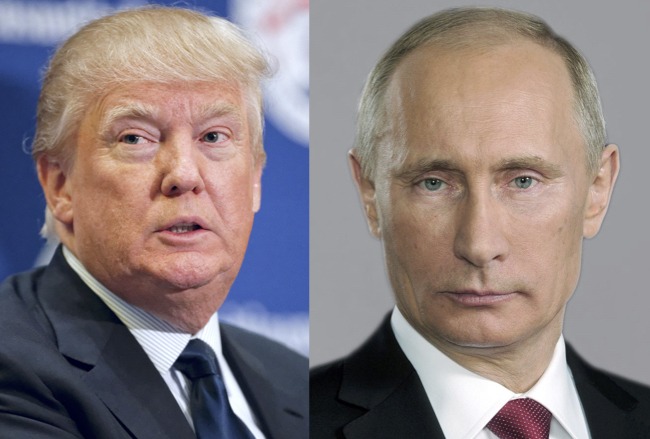Donald Trump appears to have based today’s white supremacist speech on an article from a Russian news site

Even as Donald Trump and his administration have continued to face mounting scandal over their ties to Russia, his new white supremacist scandal has appeared to stand on its own. There has thus far been no known connection between Trump’s response to Charlottesville and his overall status as a Russian puppet. But that may have all changed today – as Trump appears to have based his latest speech about white supremacy on an article published two days ago on a Russian news site.
Trump focused today on monuments to Confederate leaders Robert E. Lee and Stonewall Jackson, arguing that these historical figures were no different from the likes of George Washington and Thomas Jefferson. But two days ago, Russian-language news site rusvesna.su posted an article which contained the following paragraph, which we’ve translated into English by using Google Translate: “A few days ago in New York they demanded that the US Army change the street names of Stonewall Jackson Drive and General Lee Avenue. However, the army responded that both generals are part of military history and deserve to be kept in the memory of Americans, especially since the streets were named after them in the spirit of ‘reconciliation’ after the war.”
That’s not an exact match for what Trump said today about Stonewall Jackson and Robert E. Lee – but it’s startlingly familiar. It’s difficult to imagine Trump hunting down a Russian-language article, running it through a translator, and using portions of it for his own public remarks today. So did one of his advisers feed him this stuff? Which if any of his own advisers is he even still talking to? Did a Russian entity feed him these words?
The existence of the Russian language article and its similarities to Trump’s speech today were first publicized by political writer Molly McKew (Twitter), after the article randomly invoked an old tweet of hers. You can find the original Russian-language article here. The Google Translate tool we used can be found here. For those wondering, the “.su” website suffix is registered to the Soviet Union, as opposed to the more common “.ru” suffix for Russia. Palmer Report’s research points to the rusvesna.su website belonging to an entity called the “Sovremennie informazionnie tehnologii” which has thus far proven to be a dead end – but we’ll keep digging.
